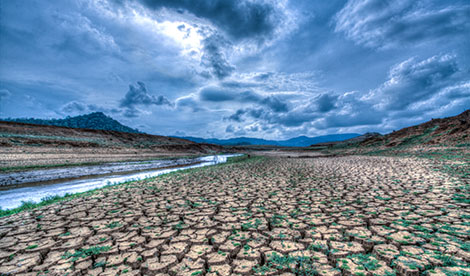

Blog

Climate change – a crisis on many levels
Tuesday August 16, 2022
Forget climate change just being an environmental issue. The world has moved on. It’s now an economic issue, a community safety issue, a national security issue – and yes, most certainly, a public health issue. And it’s not just a looming crisis either.
Climate change is here, and action is needed now. Temperatures are rising, severe weather events are increasingly frequent, and bushfires are more intense and destructive than ever. The impact on human health can be measured by the loss of lives due to extreme weather events and fires, respiratory issues and heat stress.
As an energy-intensive economy, Western Australia puts a significant amount of climate-warming gases into the atmosphere. The immediate challenge is doing things differently – whether it’s the way we heat our homes and hospitals, how we cook, or how our biggest greenhouse gas emitters power and operate their billion-dollar processing plants, mines and factories.
The nature of our State’s economy makes action on climate change difficult. WA’s globally significant resource projects employ thousands of Western Australians and sustain our prosperity. Government must show the way forward. The McGowan Labor Government has already committed to a historic, careful and planned transition out of coal-fired electricity by 2030.
We are investing $3.8 billion on new green and cheap renewable energy, vital storage with batteries and possible pumped hydropower, as well as increasing the capacity and robustness of our poles and wires to handle a massive increase in renewable load.
Transitioning from coal provides our government the opportunity to set an ambitious whole-of-government 2030 emission reduction target of 80 per cent below 2020 levels. This target sets a model for business, industry and the broader community to follow our interim whole[1]of-government aim, which relates to emissions from all government operations – including the Department of Health.
The WA Department of Health has established a Sustainable Development Unit (SDU) to lead and coordinate a sector-wide response on climate action and sustainability. An SDU was the first recommendation of the Climate Health WA Inquiry, and it will be based on the UK’s successful National Health Service model, which has operated since 2008.
While this is incredibly important for our environment, it also provides a clear message that WA is open for investment in renewable energy generation. Investment that has been missing on the east coast, and which has contributed to their current electricity crisis.
Climate change represents a whole-of-community challenge, as well as an opportunity. I look forward to the support and input of the medical fraternity as we work together to sensibly manage the transition to a net-zero future.

